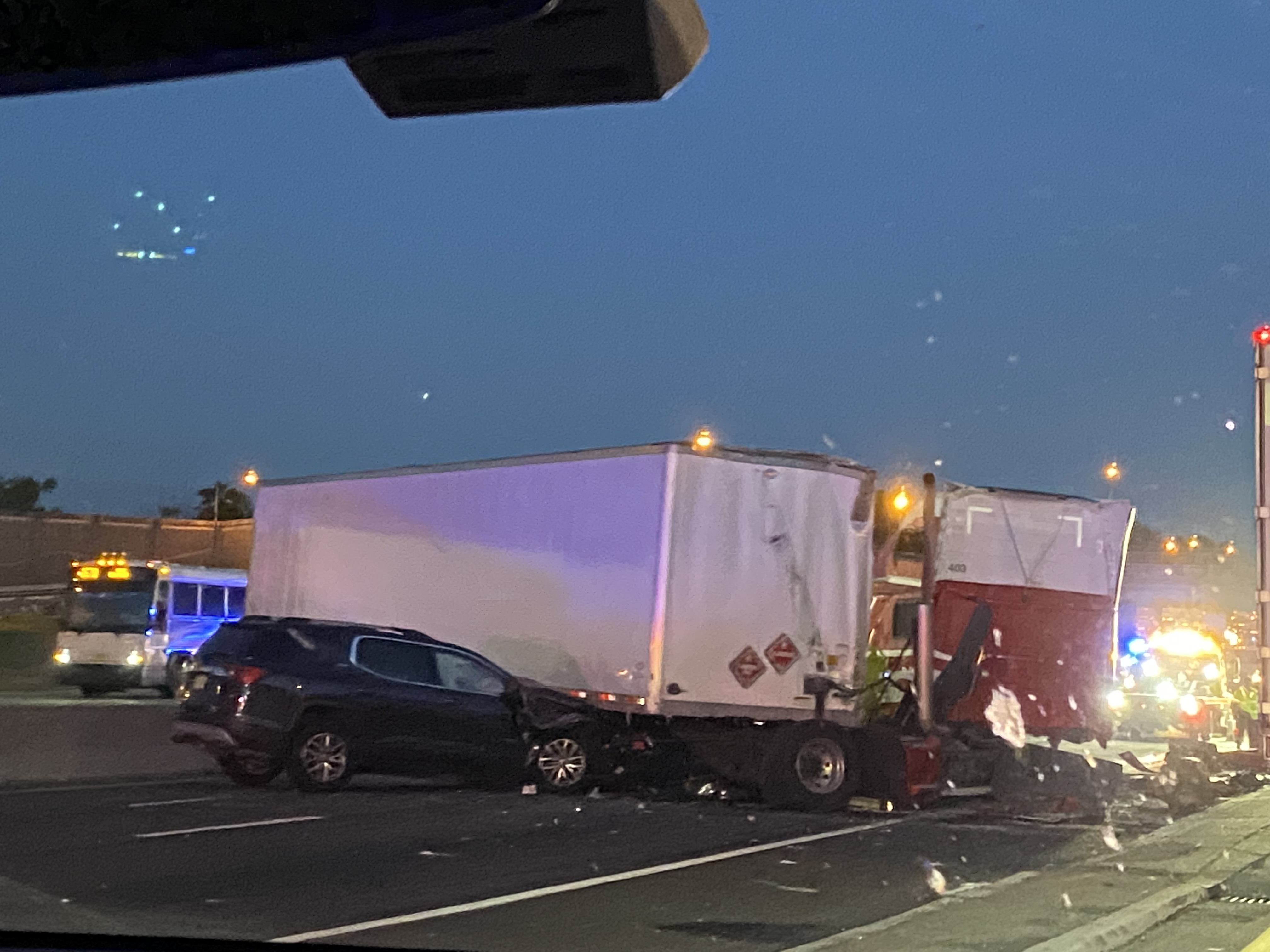As the two-week standoff between pro-Palestinian protesters and college administrators at Columbia University in New York came to a head Tuesday, officials anxiously monitored whether the fallout would spark more protests on college campuses around the country or quell what has been a growing movement.
It was the former.
Here's a timeline illustrating how Columbia became the driving force behind national college protests:
April 17
Students set up an encampment at Columbia University the same day university president Nemat "Menouche" Shafik is called for questioning before Congress. Shafik is heavily criticized by Republicans who accuse her of not doing enough to combat concerns about antisemitism on Columbia's campus. Allegations of antisemitism arose during Pro-Palestinian protests against Israel's actions in the war in Gaza.
Get Tri-state area news and weather forecasts to your inbox. Sign up for NBC New York newsletters.
The public grilling session comes four months after a similarly contentious congressional hearing led to the resignations of two Ivy League presidents. Unlike her counterparts, who focused their responses on protecting free speech, Shafik strongly denounced antisemitism, saying it “has no place on our campus.”
Local
April 18
New York City police are called to Columbia's campus to disband the pro-Palestinian protest encampment and arrest more than 100 protesters. Those detained include the daughter of Democratic U.S. Rep. Ilhan Omar, who a day earlier had questioned Shafik about the school's treatment of pro-Palestinian protesters.
The arrests, which came by Columbia University's request, garnered national attention and inflamed college protests across the country. A day later, the University of Southern California announced it canceled the keynote commencement speech by filmmaker Jon M. Chu. USC had already disallowed its student valedictorian, who is Muslim, from speaking at the May 10 commencement.
In the coming days, pro-Palestinian encampments are set up at the University of Michigan, the Massachusetts Institute of Technology and the University of North Carolina.
April 22
Columbia cancels in-person classes, and an encampment set up at New York University swells to hundreds of protesters. NYU officials call in police after warning the crowd to leave and saying the scene has become disorderly. Police arrest dozens of protesters at NYU and at Yale in New Haven, Connecticut. The gates to Harvard Yard in Cambridge, Massachusetts, are closed to the public.
President Joe Biden addresses the unrest and seeks to find a narrow middle ground by condemning “antisemitic protests” but adding that he also condemns "those who don’t understand what’s going on with the Palestinians.”
April 24
Columbia administrators set a new midnight deadline for protesters to clear the encampment. While some do leave, others dig in and refuse to disband until the school agrees to stop doing business with Israel or any companies that support the ongoing war in Gaza.
Elsewhere, police make more arrests on other university campuses.
At the University of Texas at Austin, hundreds of local and state police — including some on horseback and holding batons — aggressively clash with protesters, pushing them off campus grounds, and arrest more than 30 demonstrators. At the University of Southern California, police peacefully arrest student protesters.
PHOTOS: Columbia University student protesters take over Hamilton Hall
April 26
Columbia University students say they're at an impasse after exhaustive negotiations with administrators, and intend to continue their encampment until their divestment demands are met. That comes after hundreds of protesters have been arrested nationwide over the previous nine days.
The school sends an email to students saying that bringing back police “at this time” would be counterproductive.
Meanwhile, schools across the country where protests have taken root prepare to shut down encampments over reports of antisemitic activity and concerns the protests will mar upcoming commencement ceremonies.
April 29
Columbia makes good on its promise to suspend students who defy a 2 p.m. deadline to leave the encampment of more than 100 tents. Instead of vacating, hundreds of protesters remain, marching around the quad and weaving around piles of temporary flooring and green carpeting meant for graduation ceremonies that are scheduled to begin next week.
Around the country, the number of arrests at campuses nationwide is approaching 1,000 as the final days of class wrap up.
April 30
Dozens of protesters take over Hamilton Hall on Columbia's campus, barricading entrances and hanging a “Free Palestine” banner from a window as administrators warn that they face expulsion for doing so. Protesters insist they will remain at the hall until the university agrees to three demands: divestment from Israel and companies supporting the war in Gaza, financial transparency and amnesty for protesters.
Late that night, hundreds of heavily armed NYPD officers stormed the hall, clearing the protesters from that location and the encampment. No injuries were reported. New York City says outside agitators led the escalation. While that was happening, students protesting the war in Gaza at UCLA were involved in violent clashes with police.



